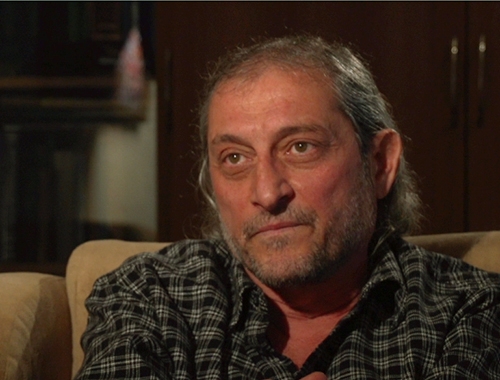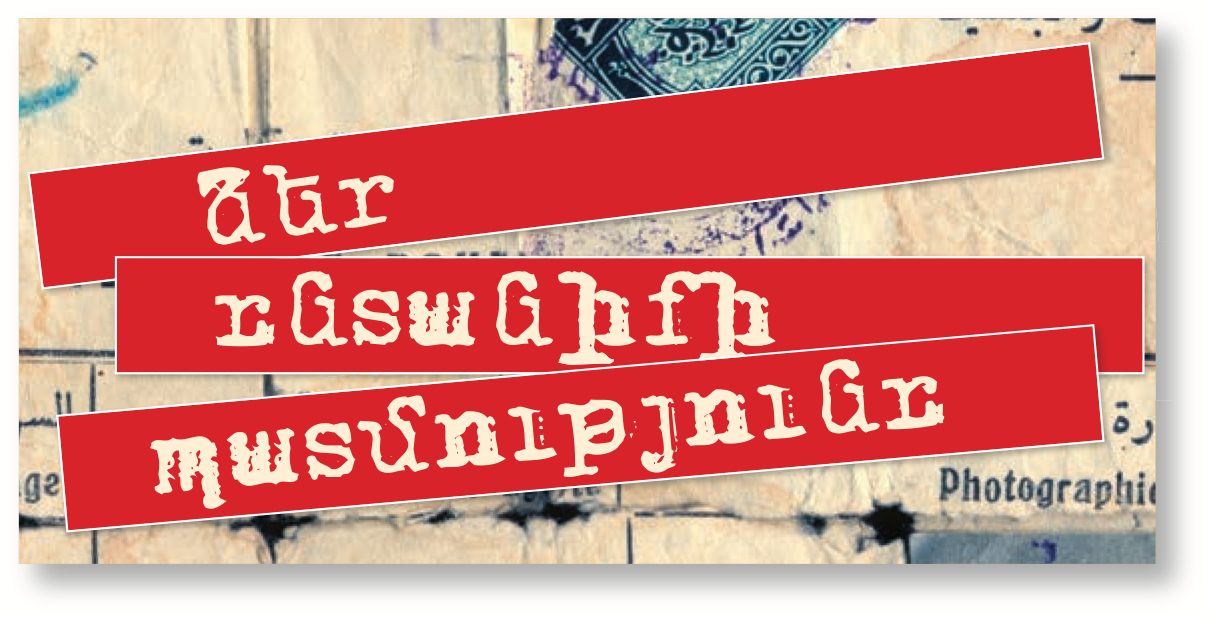 His family immigrated from Greece in 1947 / In 1949, they were exiled to Altay / Stepan was born in Armenia
His family immigrated from Greece in 1947 / In 1949, they were exiled to Altay / Stepan was born in Armenia
Stepan Varanyan
Even though my father has achieved great success in Greece, he really wanted to live in Armenia and sort of start his life anew. He graduated the Athens Conservatory and continued his studies at the Milan Conservatory. He had a magnificent voice; a baritone. He trained his voice and studied to be a conductor. He had a youth choir by then. He met my mother in that choir. She was a singer. They married in Athens and dreamt that his children would be born and grow up in Armenia.
They arrived and were deported in 1949. My father would never talk about it. But since he died quite young, my mother had told us some things.
The family rented a place in the “officers’ house” in Yerevan. It was a black building. They came at night and took them. They were sent to Altay Region in a cargo train. My father didn’t talk for the first thirteen days. I think that he felt he was to blame. After all, he was the reason why they came to Armenia.
My mother said that when the train would stop someone would yell out to climb under the train if they had to go to the bathroom. Can you picture it? Men and woman being watched by armed soldiers? That’s one of my mother’s worst recollections.
They were finally resettled in some district. They would cut down trees in the forest. One day, probably thinking there were some good specialists in the group, they lined the people up and called out - physicists take one step forward; chemists, one step forward; musicians, one step forward.
Being a musician, they took my father to Barnaul. But my mother, pregnant with my brother, stayed in the forest. My father was only able to bring his wife to the city six months later. So, my older brother was born to Barnaul. They gave my father a job playing the bayan (a Russian button accordion - ed). He was an accomplished pianist. There was a small piano brought from Athens in our house. While he never played the bayan, that was his job.
They took him for interrogation in the taiga and tried to pry some confessions from him. There were scars on my father’s back, knife marks. They had tortured him to sign some documents that he was a spy.
They also had language problems in the forest. They didn’t know Russian. My father knew seven languages, all European, except English. My mother was an English specialist. But they didn’t know Russian. And you know why me and my brother went to a Russian school? It was because they had suffered those six years for not knowing Russian.
After all that, they still exhibited courage. They decided that my brother should be baptized in Siberia. There was an old woman named Nora, and she agreed to be the godmother. There were no Armenian churches there. I smile now telling this, but I can picture what they had to go through. They went to a Russian church and the priest says that there can be no baptism without a godfather. The Armenian deportees were afraid to serve as a godfather. So, my father was able to convince a Russian in the street. They baptized my brother. The National Choir of Siberia existed there, and it became famous later on. My father founded that choir. They appointed someone else director, but the entire foundation was laid by my father.
They returned from exile in 1955. Naturally, life had completely changed. Everything had closed and my father had no offers. My father taught in a school, but he achieved great success with his choir. The Belinsky School Choir was famous not only in Armenia but throughout the Soviet Union.
Most of the instructors at the Belinsky School Choir were deportees. My physics instructor was a scientist; not a teacher. He suffered with us, but his mind was elsewhere. In this way, our school had a quality reputation. My father, with his education, was a voice instructor. Yes, later he became the director of the Sayat Nova Music School
I should say that immediately after returning, my father visited the KGB and requested to see his file. He wanted to know why he had been exiled. An official there took the file out but, of course, didn’t show it to him. The official told my father, “You started a Dashnak paper in Constantinople in 1918.” My father was born in Constantinople, but in 1918. My father replied, “I couldn’t have started a paper in the belly of my mother.” These words became a famous phrase later.
Someone had falsely testified. I even know the last name of the person. There was a plan to empty Armenia. I think it relates to tens of thousands of people. Those they deported those years. And not only the western Armenians. I remember my mother saying that there were peasants and laborers from Alaverdi, Kyavar, Gyumri, Kirovakan…Of course, most were western Armenians, but there were also locals. My mother said so. Many didn’t return. Some didn’t survive. My father was lucky to wind up in Barnaul.
They gave us a two-room apartment near the market in Yerevan’s Third District. I don’t remember the year. There was an internal order during the Khrushchev era that those people were to get apartments.
My mother would spitefully talk about the exile. Not my father. But there was great sadness in his eyes, despite the fact that he was very joyful on the outside – a good conversationalist who enjoyed a good time. They would have events at the school and he would sing with that great voice of his and dance. He knew the waltz, the tango…He lost his voice in Siberia since he started to smoke and drink. Whose voice could withstand the taiga? But something remained.
He was a very handsome man. He dressed well, in the Italian style, wearing a cap. At the table, saying a toast, he had a polished way of holding a fork. This led to intrigue and jealousy at the philharmonic. But my father treated it with a sense of humor. He had no evil side. He’d let it all pass.
I should say that to the extent that my father limited his anger, my brother had that hate towards the Soviet Union.
It was the early 1960s. The family started to discuss leaving the country. But then, something amazing occurred. They never left. My father reverted to his old beliefs - that this is his country, his Armenia. He didn’t believe that the country would change one day, but he had this Greek friend named “old man Koko’. He too had received a good education in Europe. Koko would say, “This country will collapse and we’ll have an independent Armenia.” Koko, by the way, lived to see independent Armenia. Afterwards, he’d come to our house almost every morning, with the newspapers. He’d drink his coffee and tell us the latest news.



















